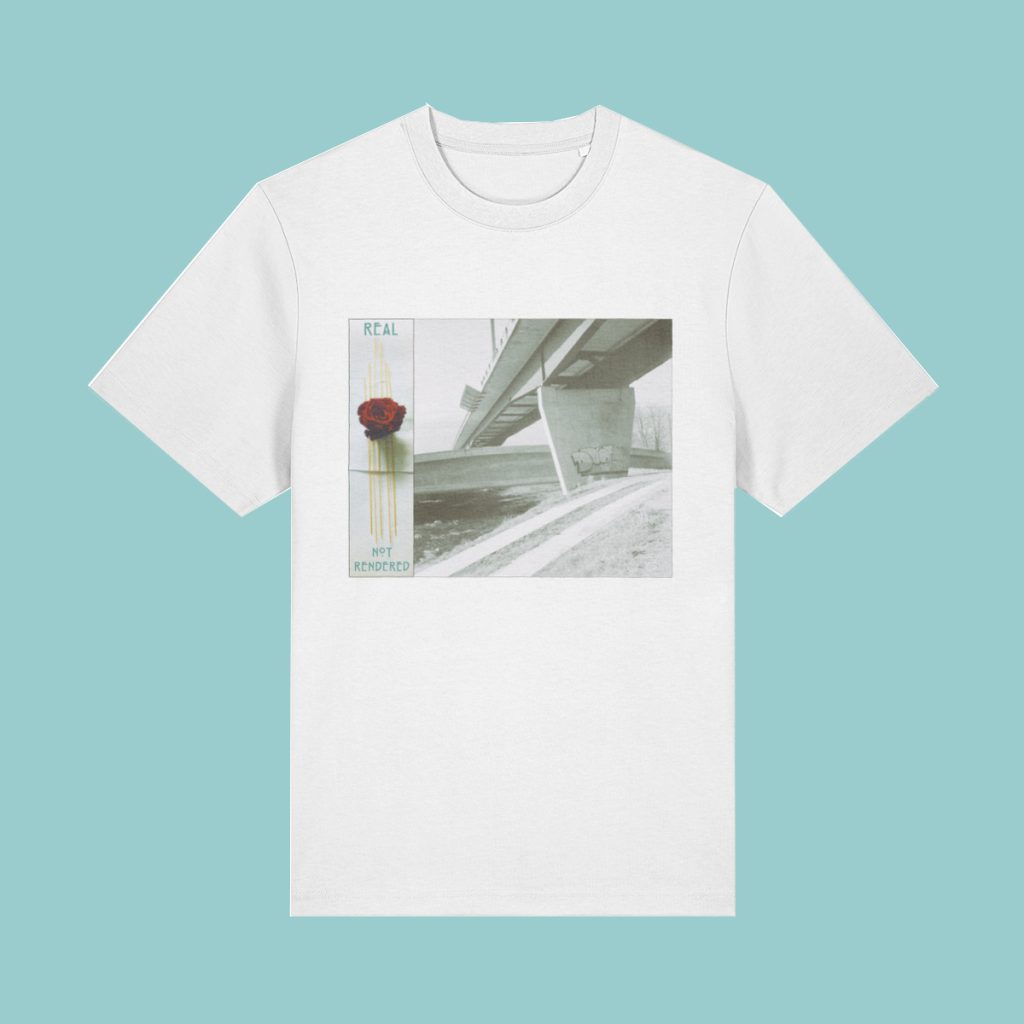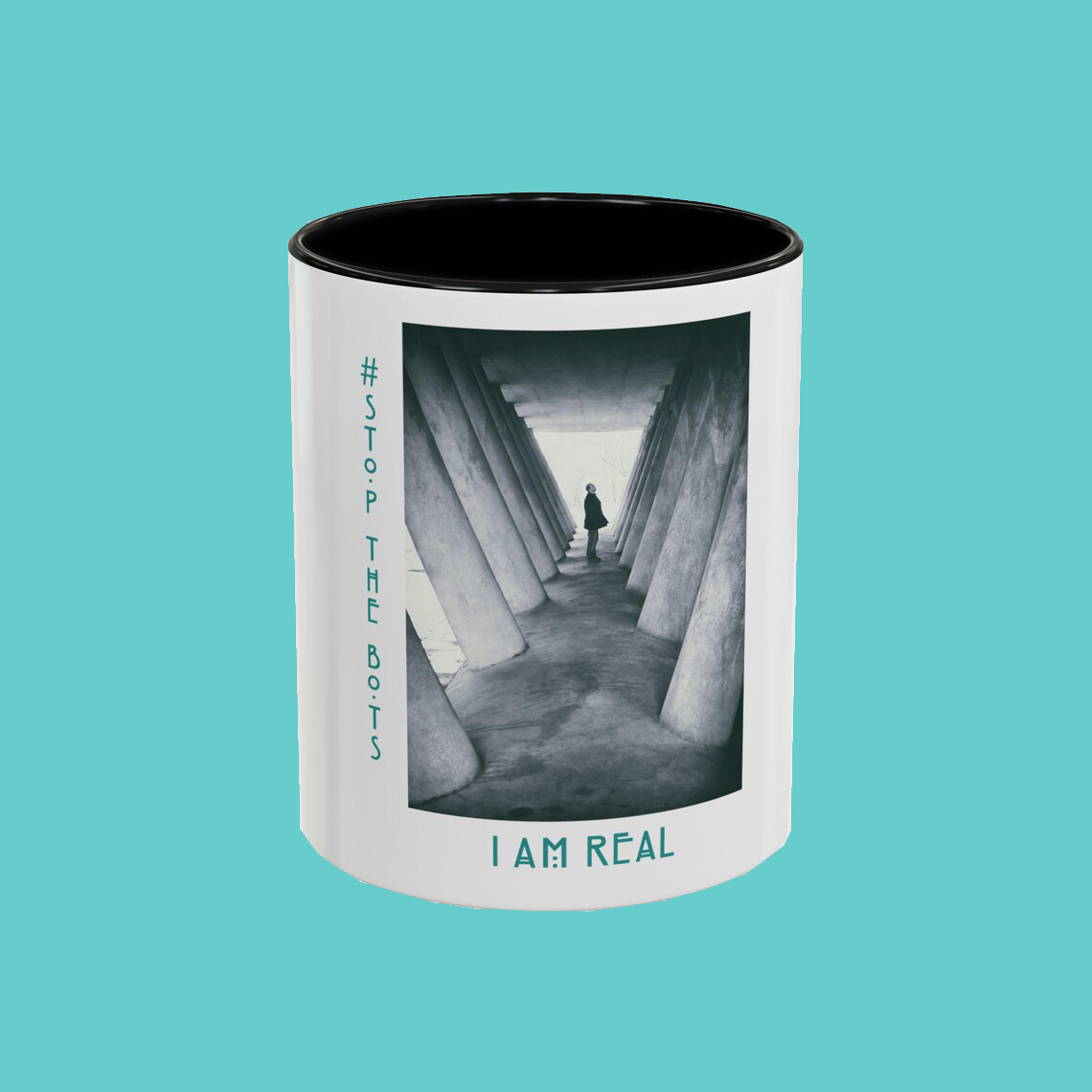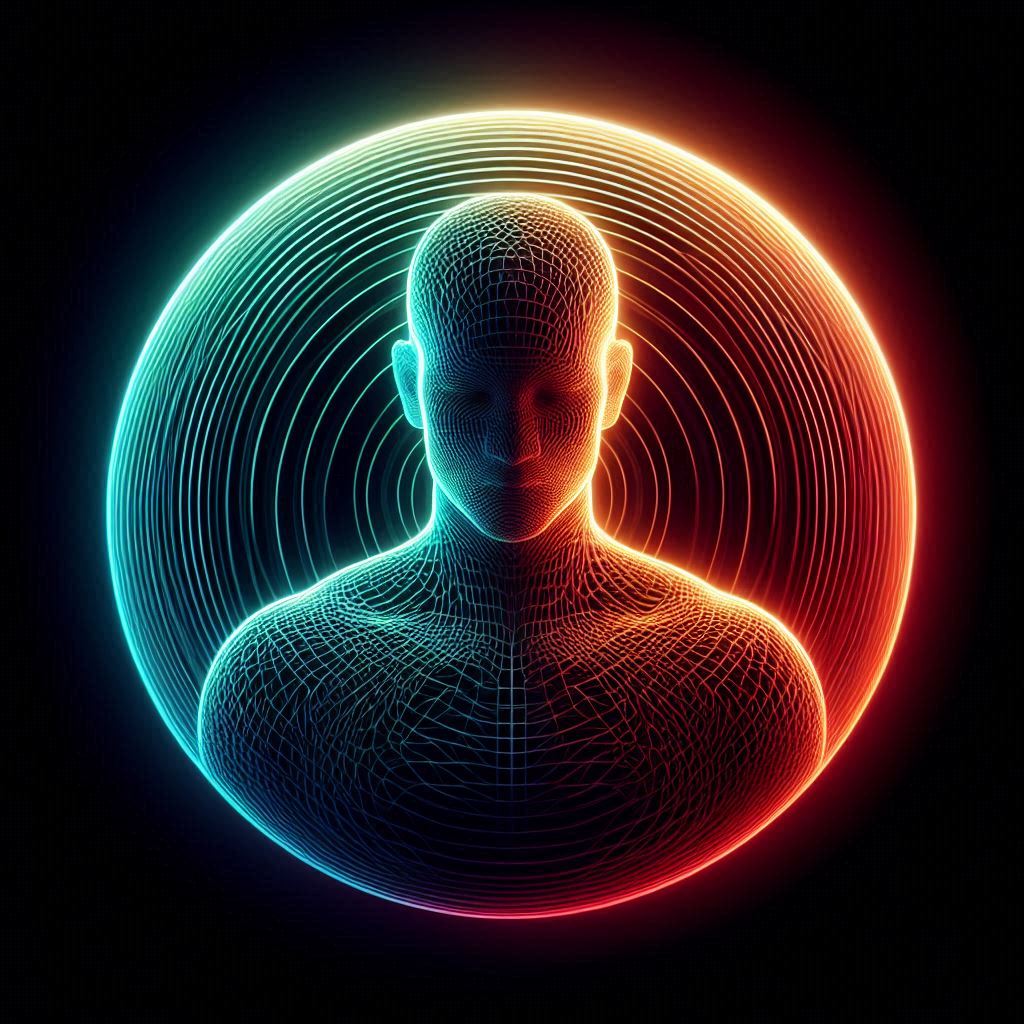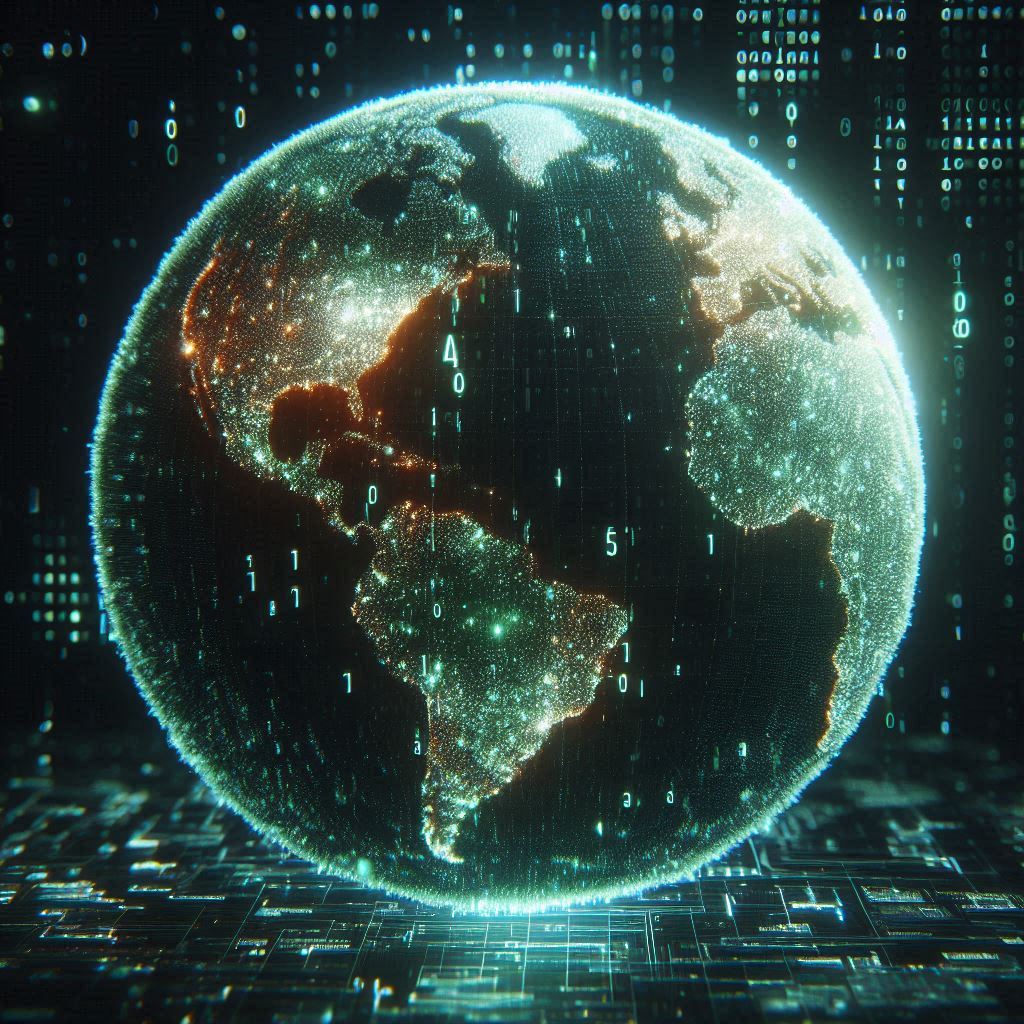Your cart is currently empty!
Tag: Artificial Intelligence

“REAL NOT RENDERED” – Anti-AI Tees for AI Ethics awareness
In a pushback against AI Art, and Artificial Intelligence in general, I have decided to spend some time in the Anti-AI camp, and have released some Anti-AI t-shirts (tees).
However, AI Ethics are complicated. We are well past the point of being able to reject AI now. Pandoras box has been officially opened. If we choose not to use it, then other’s in the AI arms race will utilise it, and then we will (most probably) be subjugated by an AI weaponised nation. It’s horrible to think in this way, but we unfortunately must.
So, with AI here to stay, how will the future develop? This is hard to say obviously, but I believe we will have a spectrum develop on AI usage, with some nations utilising it more than others. WHat it will come down to, I expect, is belief in AI over human output. What do I mean by this? Well, within our education and employment sections, how much are we going to yield to the machine? Can a computer truly be creative? Will it become truly creative? Because at the moment what we have is a machine that very clearly needs to be overseen. The real creative decisions are still coming from the human overseers. But is this enough?

Shirt 1 in the Real Not Rendered Range We have to consider the dramatic impact on the development on the brain from AI, as well from other virtual sources (social media). It’s possible that with social media, the powers that be are happy, in a sense, to be able to manipulate the public from a central position, keep things stable. Of course, stability is very important. But humans are often very much short terminists – they are happy with their immediate short term futures. Even those that think farther ahead are happy as long as their lifetimes are covered. With AI, we are not just manipulating what people consume, in the form of the small sensationalist , dopamine releasing, reels or headlines, but we are also now affecting their ability to create content to consume. And so we are potentially left with a society spiralling into a devolution of sorts, with the content surely becoming ever more addictive whilst at the same time lacking in depth.
However…what if one country decides to retract from AI in some imperceivable way… What is this country bets on humans? What if they believe in humans , whilst accepting a potential loss in stability, by bringing humans to the forefront through an education system that doesn’t have chatgpt writing all their essays, that teaches them to create art by hand, which doesn’t alter their brain structures through small, sensationalist social media content. Won’t this country or countries eventually triumph long term?

REAL NOT RENDERED shirt 2 Humans can also restrain themselves from AI usage manually, but it is so much harder when availability is so high. Also, I am not saying that minimal use of AI is not helpful. In a world where jobs are decreasing through, you guessed it, it may be that we need multiple arrows to our quivers. We may need to adapt to a world of massive acceleration, where occupations are no longer lifelong, instead becoming irrelevant fast as the next technology arrives. In this setting, having brains that are highly adaptable would be perhaps the advantage, and with speed being relevant, then having AI perform a series of small tasks combining into something larger, something that the human is overseering, could be the answer. But humans must be at the forefront, must be the leaders, must exercise their brains.
Maintaining an Anti-AI stance, then, is not necessarily about resisting Pandoras Box. Instead, it relates to a philosophical question:
Can the machine surpass the human to the point of making the human irrelevant?
We can now position Anti-AI as positing the answer “No” to this question, and the Pro-AI camp posting “Yes”. It’s not a question of whether or not to use technology that already exists, but instead about what our belief structures are around it.
So, T-Shirts then. Ha. Seems a little silly. Truth is I like photography, I like art, and I like it when human’s do both. I think the internet has caused mass saturation of these sphere’s, which I talk about here and here, to the point where no-one really cares about freestanding art. It now needs to come with some form of function. And so wearable art seems logical. In this sense, we can at least feel that our art is being used in some way, utilised in a positive sense. In the case of “REAL NOT RENDERED”, the photography is mine, although perhaps for future releases I could use photography/art from other people.
The logo was a mini project using real materials. I had experimented with graphic logos, but in the end, they just didn’t marry well with the photographic subject matter. So in the end I ended up setting up a photography shoot for the logo, adding text into the image towards the end of the process. I’m quite pleased with how, to my eye at least, it marries with the photography on show.
After the logo, the decision was what photography to use with it. For this set, I have chosen urban structures. Firstly, the sublimation process lends itself well to obvious structure, and lends itself less well to fine details, and so an urban setting suits this well. I also like that urban structures are man made, and example of what the human mind can achieve. And finally, I like how the the images contrast with the logo.So, T-Shirts released, Anti-AI article written. For today, I am reasonably happy. But it’s the future I’m concerned about.

REAL NOT RENDERED shirt 3 Want to support human-made art?
Check out the REAL NOT RENDERED collection here: KalimetricShopOr share this post with someone who still believes in the human touch.

Why I created Anti-AI Art.
The AI Art ethics space is rife with debate at the moment, and springing from this is the new Anti-AI movement. At its core, is a belief in the human, and human-made design.
And so, it is into this space that I descended. But how can one person out of approximately 8.1 billion (by projection) help?
Okay, so the first point I should make is I haven’t created new Anti-AI art, but rather reutilised my photography in conjunction with slogans to create fusion art that I can place on T-Shirts, mugs, or other products.
The reason for doing this is that these products, as well as being sellable, are also considered statement pieces. People use these products to communicate, as perhaps they are not as great at communicating verbally. The Anti-AI products work as an ice breaker. Perhaps they are taking a break at work with colleagues, and someone asks about their “# Stop The Bots” mug. Or perhaps they are on the subway, and someone asks about their Anti-AI art T-Shirt. Essentially, they are communicating that they affiliate or believe in something.
But why would I want someone to be doing this? WHat has AI Art ever done to me? Well, that is complicated, and perhaps is linked to my belief that humans are good for creating things. I don’t think that AI should be doing everything for us. There are certain tasks and activities that enliven a human being, perhaps even elevate them. These tasks are good for the soul, and enable us to contemplate life and its meaning. Creating art is one such task, and the danger with AI is that we lose this skill to the machine, not to mention perhaps losing the complexity of art along the way. Humans are going to find it tough to compete with a machine that can fire out (currently) 4 images every 10 seconds, particularly in the employment sphere, whereby employers are going to weigh up cost/benefit scenarios.
However, this isn’t the only problem. In fact, it seems that we are slowly outsourcing our humanity to the machine, leaving it not only to create art, but also to write for us, think for us. If we aren’t working those sectors of our brains for anything complex, then we are actually going to regress in intelligence. This places us at risk of manipulation, in ways we probably already are unable to conceive of.
A further risk factor is in how the controllers of the machines perceive us. If we no longer provide economic value, if we are unable to contribute to society in any meaningful way, then what use are we? This is really dangerous territory. Human’s must maintain their value. But how can we do this when the Artificial Intelligence rise seems so inevitable? We need to get thinking, and…expressing.
So these mugs, and perhaps T-Shirts in future, are really there to get people to question their reality. The “I AM REAL” statement beneath the “# Stop The Bots” line relates to the supplied photograph. A photograph is a representation of physical reality. It’s easy in the current world to become so embroiled in the virtual, that we forget to enjoy the physical. The real world takes a different mindset to enjoy, one perhaps of patience, that of contemplation, that of working to enjoy sharing space with the other. We are in danger of losing this mindset if we chase the small and frequent dopamine hits of the online space. Essentially we are being locked into vicious consumption cycles, and we need to find a way to break it.
So Anti-AI art then. I certainly don’t have all the answers yet. HOw to break the dopamine consumption behaviours, how to get outside more, how to form physical communities again? But perhaps you will have the answers. Or if you don’t have the answers right now, then perhaps you would like to joing the “# Stop The Bots” project by creating your own mugs?
That’s where I’ll leave it. The future is both terrifying and exciting. Let’s hope that we all still have room and the means for expression in 40 years. See you in the future!
Want to support human-made art?
Check out the Anti-AI collection here: KalimetricShop
Or share this post with someone who still believes in the human touch.
Atheism and Utopia
Through having some discussions with friends over a catholic article, the topic of utopia was reached.
The reason for this was a proposal that perhaps utopia is the atheist alternative to heaven, entirely human in it’s construct, a place of luxury, and no work.
This is an interesting perspective, for the specific reason of it’s “unspecificity”. No matter how many times we discuss utopia, we fail to define it. It is as elusive. Many want it, but are unable to express what it is.
Which does beg a question: why is it so prominent in our culture? What does it’s concept signify about the self?
It’s prominence comes from a daily slog, constant battles, and draining integration. At least for many of us. I think people are seeking peace. But there is confusion over how this should manifest, hence the entry of utopia over heaven. God is exacting. He wishes for us to conquer sin and self. Utopia, with its lack of definition, exacts nothing, existing as an ephemeral better. “With AI, we will achieve Utopia”.
It seems, observing, that perhaps what is happening here is as simple as an aversion to work. People do not like working, which can be translated as do not like doing what I don’t want. And here it is that I think we have partially come to the definition of utopia. “A place where I can do what I want, all the time”.
Essentially, it is partially where the individual can run rampant. I say partially, because in the vast majority of cases, people also want a little more from utopia, and that is the presence of others to spend utopia with. This, then, is quite the spanner in the works, because to co-exist, we need some form of compromise over what we do…
To position this slightly differently, if our utopias existed within a computer simulation, where we lived in our utopia, complete with our rules, regulations, and behaviours, and also, we were surrounded by AI Persons (or NPCS), which, crucially, the software masked in order to make it seem like they are real people to us, would we be happy with an existence where our every dream and desire was met? A world of yes men and women? A little thinking surely arrives at the conclusion, that no, this is not utopia, but indeed a sickly, deeply solipsist nightmare. We need other individuals, complete with their own thoughts, behaviours, and opinions. In order to socialise with such persons,we need to work, work towards and with the other in order to understand, and perhaps even enjoy the perspectives gleaned from shared existence.
And how can this sharing of existence occur? How can there be two, three, 100 truths, all equal ways of observing and living life? Surely this in itself points to an infinite source of everything…God. But this definition does not include the incorrect pathways taken in life. That of death, hatred, an aversion to the other. If we can infinitely find ways to love, through God, we must also consider the opposite, a frightful and lonely spiral into the desolation of the singular, the “utopia” which has only the self, and no other.
So, in finishing, we should remember that those who promise utopia have not defined it, because it exists strictly as an individualistic fantasy which paradoxically fails to consider the other, who we wish to spend utopia or immortality with. To exist with someone means the necessity of friction, and thus work to understand that person’s position. Work is what God wishes of us in order to reach that state worthy of heaven. So, we should stop dreaming of an undefined and unreachable “utopia”, and instead work hard for heaven.
This article is written by a Catholic, but does not necessarily represent Catholic perspectives or revealed truth. I am happy to be corrected with inaccuracies.
The Technological Crossroads
Are we fast approaching a technological crossroads with AI and the internet?
The internet has given us much already, and AI has the potential to completely restructure society, perhaps for the better. But where does this pathway ultimately end? Do we reach utopia, completely free to explore our every desire and whim? Would that even be a utopia?
A darker perspective is that the technological path is actually leading us towards symbiosis with the machine, as opposed to the natural world. It’s possible that the natural conclusion of this pathway will be the replacement of the natural, physical world, where we must labour, to an entirely virtual world, with its promises of limitless possibilities and labour-free utopia.
However, digitization seems to always be an approximation of reality. Certainly now, and maybe forever. We are still finding smaller and smaller particles of matter. Will this end, or will it continue infinitely? It seems that if “smallest” has a limit, then matter could in fact be a simulation, with replication of the world and universe possible…perhaps. But I don’t think that this is the case.
I believe that God, and only God, has given us matter. If we can find the smallest possible particle, then can we not also be God to an extent? Even if this were possible, we would also need to solve consciousness, which we are very far from doing, and if each soul is unique, does this not also point to a form of infinity of what makes mind?Why, though, is this important? Well, as mentioned, we appear to be fast approaching a crossroads of sorts. Machines are becoming so advanced that they are outcompeting us at a number of work related tasks. In accepting this, we are giving our minds over to the machine. As I mentioned previously, there are surely some tasks which should remain human, the tasks which elevate our minds and souls, taking us closer to God whilst also developing ourselves. And guess what? These tasks require work. We shouldn’t be against work, as it is essential in the job of creation. As evidenced from God, who rested on the 7th day.
The crossroads, I feel, will not just involve us contributing to machine intelligence, but will actually ask us to become machines. Become approximations of life, and experiences. At least partially. They will ask us to store our memories on brain hard drives. AI is already reading thoughts and visualising them. But a memory, as well as usually having sight, can also have sound, smell, touch, taste, and perhaps most importantly, a generalized feeling which accompanies the memory. Again, can we actually digitize any of this, or will it be just an approximation? Feeling is tied closely to consciousness, that is the act of experiencing. How can experience…life…be digitised? More than likely it cannot. So we should be wary before running to the front of the line to get our brains chipped.
Then there is also the digital equivalent of the natural virus. Do we really wish to expose ourselves to this? Could an artificial virus interact with the conscious, with memories? Already, our minds are making decisions based on the at least partial make-believe of the internet with its disinformation and AI generated content. Do we need to open up another avenue where our decisions and behaviours are artificially warped? Some will tell you, it’s okay, memories themselves are approximations. Viruses can alter your DNA in the real world. People can spread lies. It’s going to be a difficult choice for people. On the surface, it seems that it is similar to artificial medicines, which we all take to improve longevity. But the implications of being able to manipulate the conscious directly through machines, rather than the current model of abstract, promoted ideas, is rather more terrifying.
This machine fusion path we appear to be following seems to be rooted in conglomeration and complete centralization. To some, it must seem inevitable. Is there a parallel in the Biblical passage of the Towel of Babel? What can it teach us about today? Certainly, Globalisation seems to be getting pushed at the moment which is allowing massive world conglomerates to form. The internet, or the virtual world seems to mirroring this, forming the centralized conglomerates (Meta, Google, etc). This technological pathway being followed seems to be creating what could be described as a Virtual Babel of sorts, in Artificial Intelligence. Relying on the whole human virtual world of the internet for it’s data, it has become for some the single hope of reaching the heavens, of achieving transcendence, an immortality of sorts. But it is in its entirety only a work of human hands, and any creation that comes of it will reflect our flaws. Over-reliance on it, or the promotion of it as the guide for humanity, replacing God, is surely doomed to failure. Another consideration is that the human desire for immortality is being hijacked with a kind of sophisticated selling, pushing many into support of the tech path being followed. Without the promise of immortality, would the populace agree to this path, or would they revolt?The other issue with virtual conglomerates is that all the people flock there, but only a select few are allowed to broadcast effectively. The vast majority of people are left without a voice, and are left without power to effectuate change. The conglomerates can then use this position of power to promote who gets to broadcast, and thus, the message that gets broadcast, and they can solidify this power by buying out competition.
Is this the only and best model? When we analyse what is happening in the virtual conglomerates, we see that there is an embarrassment of riches. The consumer can, or at least used to be able, to peruse everything if they wanted to. But what happens here is we become bored, a saturation point has been reached. This then has the effect of diminishing everything. Art, by way of example, ceases to be valued. A secondary effect is that shallow sensationalism creeps in. A concentration on appealing to base instincts or desires. The brain in fact becomes rewired for this. The morally negative is also explored, since it now has uniqueness and appeal to the consumer. In fact, base instincts and shallow desires require no work or mastery, and so it is often the morally negative that is a default path for the weak human mind to take (think pornography). It is up to the controllers and distributors to ensure that we are not consuming this information.
What then is the problem with all of this? Why not give into base desires? Why not delve into the morally negative? The primary problem is that it leads away from God. As “God is love”, we can surmise that the path away from Him is the opposite: anti-love. If God is also “life”, then we can surmise that the path away from God is anti-life. To put it another way, the pursuit of shallow desires and the morally negative is ultimately self-serving, and ends with The Singular. There is room for no other. We need to rise up and become more than just selfish animals.
The governing structures, then, need to facilitate this. They need to respect the dignity of the human, not mass control through rewiring of neural pathways. People need to have the means to reach their potential.
Can the virtual space achieve this? The Fediverse aims to federalise the internet, breaking it down into smaller areas. This essentially means more competition amongst the broadcast areas, and less saturation of information. This is surely a good thing, but is it enough? Ultimately, the ease of obfuscation on the internet , both of individuals, and of organisations manipulating the information, leads to a lack of accountability, and a rise of manipulation. An idea should have to compete with the local, physical environment to be embedded, and the ultimate danger with the internet is it is becoming our local environment. And this is a really poor substitute for physical, local, gatherings, where the dignity of the other can be felt on a far more pronounced level. How can we really formulate decisions on how to take ourselves or humanity forward when we migrate to a virtual existence, which is just an approximation of physical existence?What then, does this mean for the internet at large? If I were to guess, I would bet that we will increasingly try to model the internet on real life, in a futile attempt to replicate what can’t be replicated. But God has given us the internet for a reason. We just need to find out what that reason is. Whilst a false god, and machine “life”, are out of reach for AI, perhaps it may help the human minds that will attempt to solve climate change by aggregating the internet’s data.
To finish then, we are fast approaching a crossroads with technology, particularly the rise of the internet with AI. The promise of an entirely virtual, work-free utopia through fusion with the machine is not something we should be striving for, nor should we be attempting to replace God. We need to be careful of our next steps, recognising that work is not something that hampers us, but instead elevates both ourselves and our community when directed in the correct way.

Community T-Shirt Project
Hello to all Neo-luddites and Tech Enthusiasts. I am here to bring you a new Community T-Shirt Project. Perhaps you feel like I shouldn’t be grouping you together, but it is a strange world we now find ourselves in. Grounded quite literally in the physical, but with the virtual world at our fingertips, what are we to make of reality and existence? Artificial Intelligence has almost (or perhaps already has) reached a point where we are unable to separate fact from fiction; reality and the imagination. We are presented with a dichotomy by those in both camps. For physical or virtual. But is this not missing the point? We have always travelled alongside technology throughout history. Big changes have come and gone, like industrialisation and manufacturing. How, then, are we to weather this massive change? We have global internet communication at our fingertips, and now the powers of virtual production are just a sentence away with AI. The ability to express ourselves has never been greater.
This, though, comes with a cost. Reality and truth are now at stake. Consumption of information through the internet comes with the peril of disinformation and manufactured reality. As our virtual worlds increase, and brain interface chips come to market, there is a real possibility that people will lose their grip on both physical reality, and also truth. The virtual world is morphing into one of imagination, whilst the physical world, and the people within it, remain our only route to the real.
Therefore, we must fashion a path with both virtual and physical either side of each other, balancing these seemingly competing worlds.
Yet already, the physical world, and people, are being neglected. We are holed up in our houses and apartments, glued to screens. When we venture outside, we are looking down into our phones, or taking selfies. We are forgetting how to interact with each other, make relationships, form physical groups, and have physical meetups. Our mental health is suffering, along with our physical health.So what can we do about this?
There needs to be a rebalance in our lives between the physical and virtual. The virtual should be confined to the status of tool, rather than a mode of existence. Let’s begin to celebrate the physical.
I will soon release details of a Community T-Shirt Project that is just one way we can begin to reconnect with the physical, whilst communicating and interacting with others.
Stay tuned for more information, and join our mailing list below for more info.
The New Real of the Unreal
As you may have gathered from previous posts, I am in the process of semi-rejecting The New Real of the Unreal. Artificial intelligence has arrived, and if we are not careful, then we stand to lose much, perhaps even our sanity.
For what is sanity apart from a firm connection to what is real? What is “real”, but surely that which is firmly believed to be the truth, firmly believed, that is, across the shared collective.
Of course, we can argue that our relationship with “truth” has always been fairly circumspect. Since the printing press, our “shared reality” has been a pushed reality that reflects the thoughts and observations (potentially) of a relatively small proportion of the population. Without adequate safeguards in place, if they are indeed possible, the idea of “truth” can be warped.
Which is why locality is so important. Can we really experience, or believe, truth without verification? If something is local, eg. a newspaper, then we can verify the stories with the environment to an extent. We can talk to people, we can visit localities.
And so what we find is that truth itself doesn’t travel long distances well. In fact, we are taught this from a young age through the game (rather inappropriately named) “Chinese Whispers”. Of course, not many consider the massive implications of this game, what this itself means about reality. And this is just in the physical realm. What are the implications for the digital realm?
Concentrating a little more on the physical, we could be ignorant individuals, and focus our efforts entirely within a very local sphere, but the issue with this is that we live within an interconnected world, where events in far off places can affect our little localities. We need trade, we need security, we need to look after those who are less fortunate. With this in mind, there needs to be a trust handover to those who are in control. To those who control the information.But can we indeed trust those in control of the information? For that, we need to analyse what is valuable to those in control. This is perhaps too broad a topic to consider in this post. We could say that each individual is valued for the unique person that they are, existing in a potentially infinite universe. Could say… Or we could be a little more pessimistic, and say that each individual is really a measure of economic potential. And this is where, in our current climate, things can start to get a little tricky. Because with AI, that economic potential is starting to look like it is a lot less than it was maybe 10 years ago.
But where does this all fit in with reality? This is the area I would like to explore a little more of over the next series of posts. I’ll start by saying that the digital world seems to be morphing into a product of imagination, rather than a reflection of the real, physical world. This is a problem, because people seem to have the idea that it is the latter, taking at face value what they read and see on the internet. With the advent of AI, there will soon be literally no way to discern fact from fiction online. The technological pace is frightening. The ability to manufacture “reality” is so profound, that we must also ask ourselves some very serious questions, such as, how long has this technology really been in existence?; how much of the internet has always been fabricated?; could a technological hegemony appear, or have already been in existence for a very long time?. We can see that there are multiple avenues for “reality” and our sanities to become frayed.
As an artist (although just a photographer), I am keen to begin to explore modern reality. What I like about photography, particularly film, is that at least I can be reasonably certain (bar some metaphysical internal discussions on whether matter really exists) that I have a snapshot of what is real, through the negative. But how, as an artist, can I begin to share this reality with others? How can we prove reality? Because I think that the future is going to bring with it a need for physicality. People are going to need to hold onto a physical item in their house whilst repeating, “This is real. This is real…”. How are we going to help people stay grounded, and encourage them to embrace physicality?